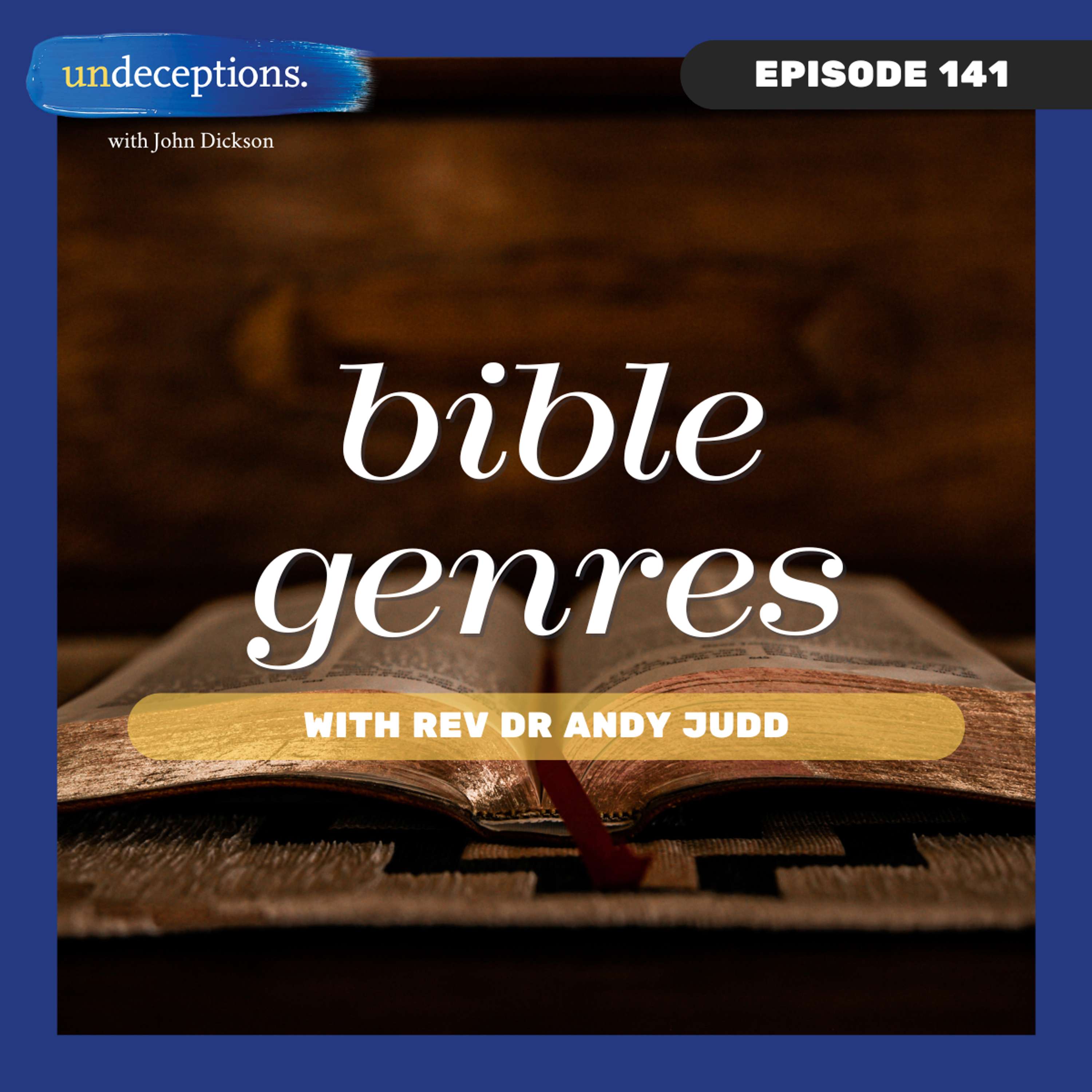
Bible Genres

Undeceptions with John Dickson
Deep Dive
Why did Bob Dylan's decision to go electric at the Newport Folk Festival in 1965 cause controversy?
Dylan's shift from folk to rock was seen as a betrayal by folk purists, who viewed it as a commercial and heretical move away from the genre's traditional roots.
What is the significance of genre in art and literature?
Genre defines the conventions and rules of a particular form of art or literature, influencing how audiences interpret and engage with the content. Misunderstanding genre can lead to misinterpretation.
How does modern genre theory differ from classical genre theory?
Modern genre theory recognizes that genres are historical and evolve over time, often blending or rebranding. Classical theory assumed genres were fixed, with clear and eternal rules, and that each text belonged to a single genre.
What are some examples of genres found in the Bible?
The Bible includes genres such as historical narrative, genealogies, liturgies, case law, poetry, songs, letters (epistles), wisdom literature, and apocalyptic texts, among others.
Why is the book of Judges often misinterpreted?
Judges contains stories, such as the tale of the concubine in Judges 19, that can be read as endorsing horrific behavior if interpreted as morality tales. However, when read within its literary context, it serves as a critique of Israel's moral decline.
What is the purpose of Genesis 1 in the Bible?
Genesis 1 is a liturgical piece designed to lead the reader to worship, emphasizing the creation of the world and humanity's place in it, culminating in the Sabbath and the call to worship God.
How does Jesus use different genres in his teachings?
Jesus employs various genres, including legislation (commandments), aphorisms (short, memorable sayings), parables (stories with moral lessons), and apocalyptic language (symbolic imagery), to convey his message across different audiences and contexts.
Why is the book of Revelation often misunderstood?
Revelation is an example of apocalyptic literature, which uses symbolic imagery to convey spiritual truths about God's ultimate victory over evil. Misunderstanding it as a literal historical narrative leads to misinterpretations about future events.
What is the social function of apocalyptic literature?
Apocalyptic literature, emerging during times of distress, provides hope by revealing the spiritual forces at work behind historical events, assuring readers that God is in control and will ultimately prevail.
How does the story of Hagar in Genesis 16 relate to genre interpretation?
The story of Hagar can be read as either endorsing slavery (pro-slavery interpretation) or as a narrative about God's promise to an enslaved person (anti-slavery interpretation). A better reading focuses on the latter, emphasizing God's care for Hagar rather than Abraham's actions.
Shownotes Transcript
With 66 different books composed across literally thousands of years, it's fair to say the Bible is a complex read. But it doesn't have to be. The key to understanding the Bible is understanding the different literary genres.